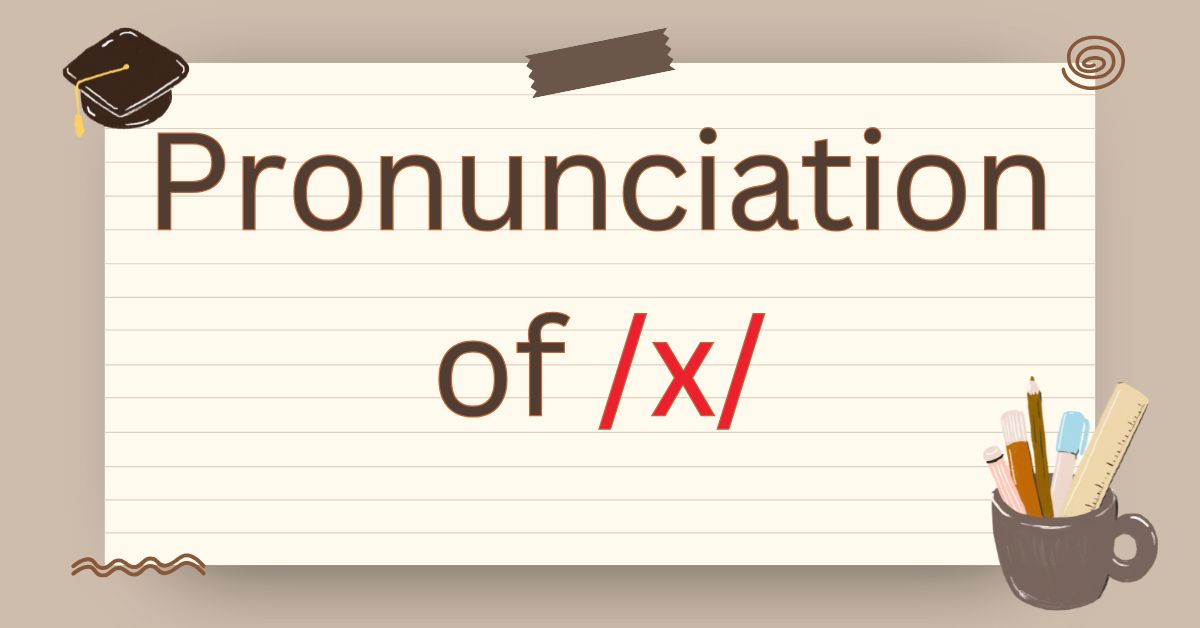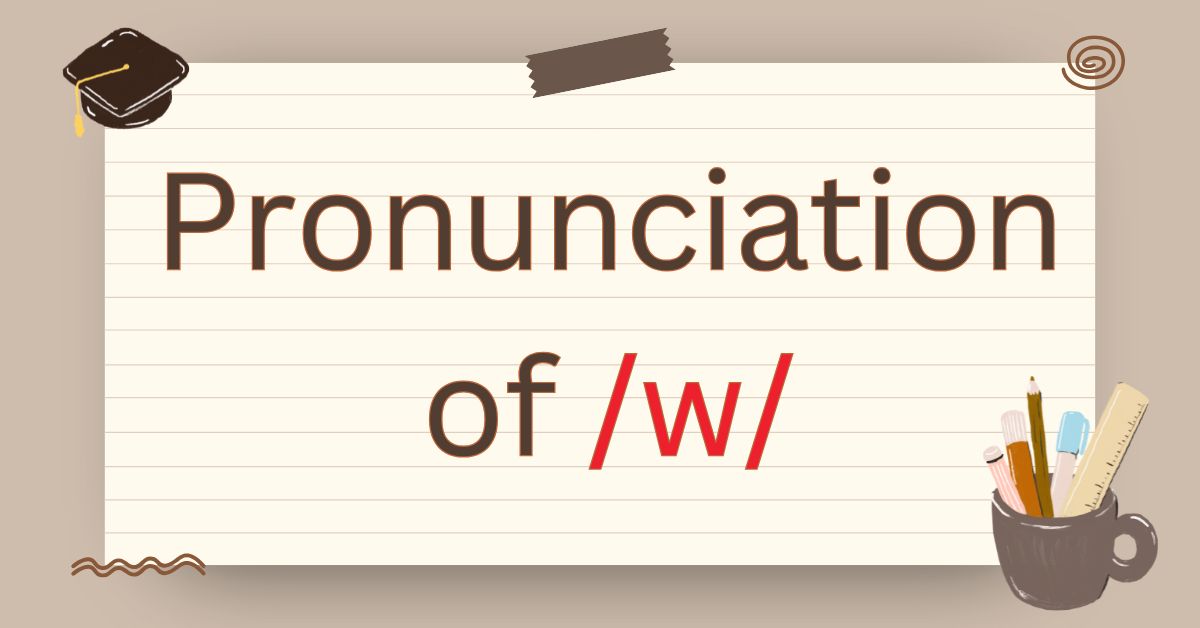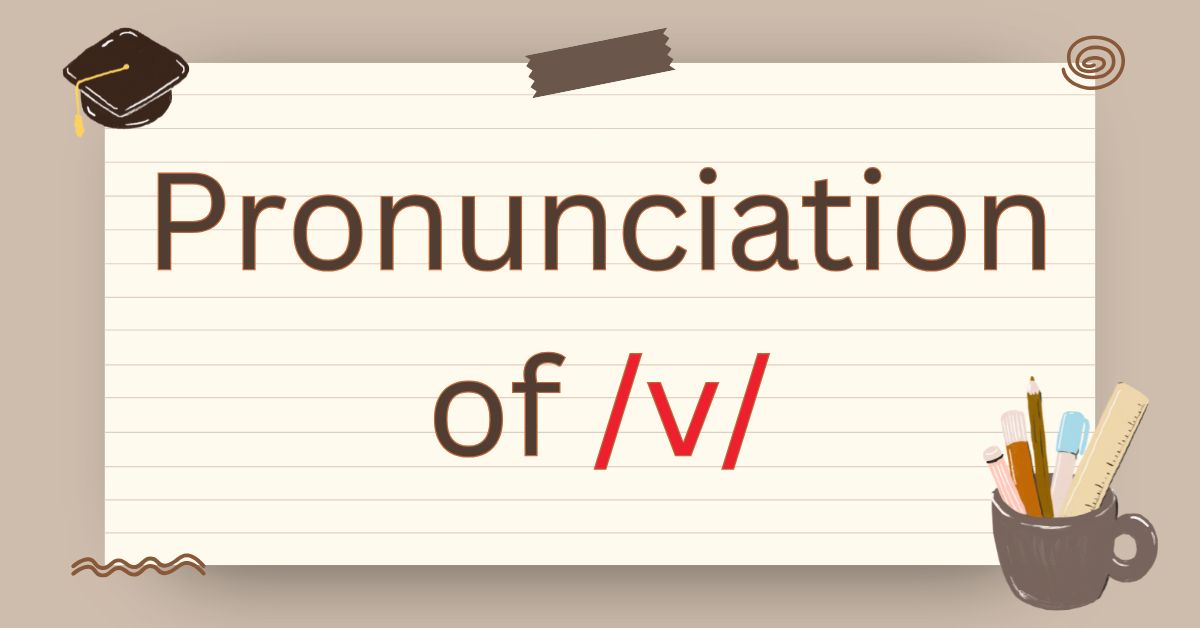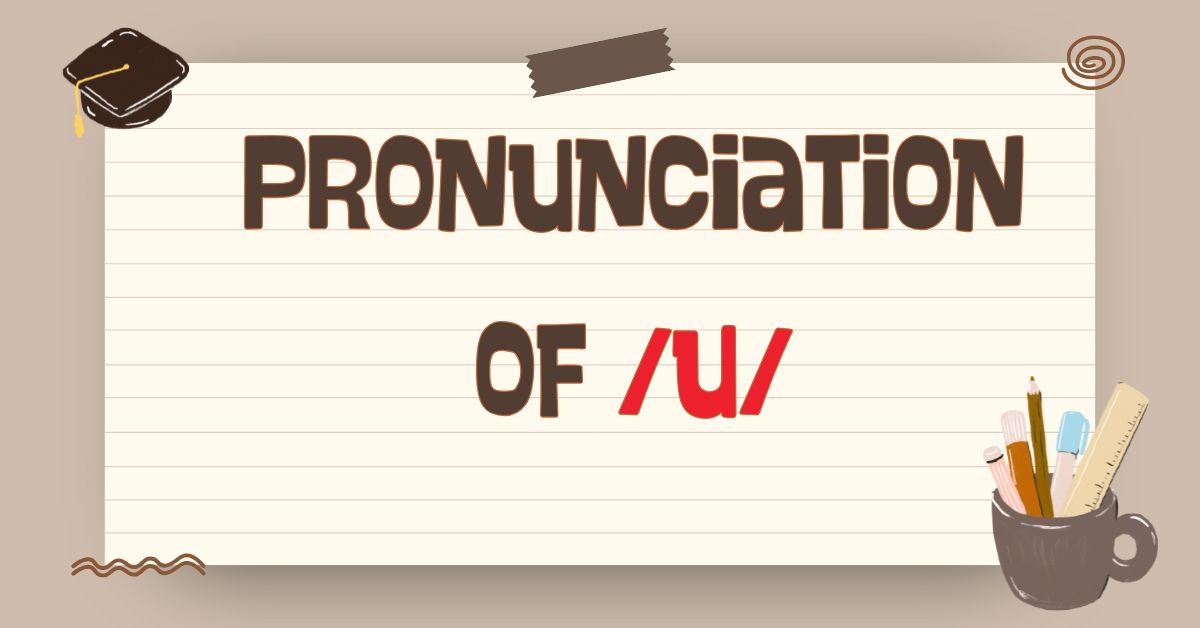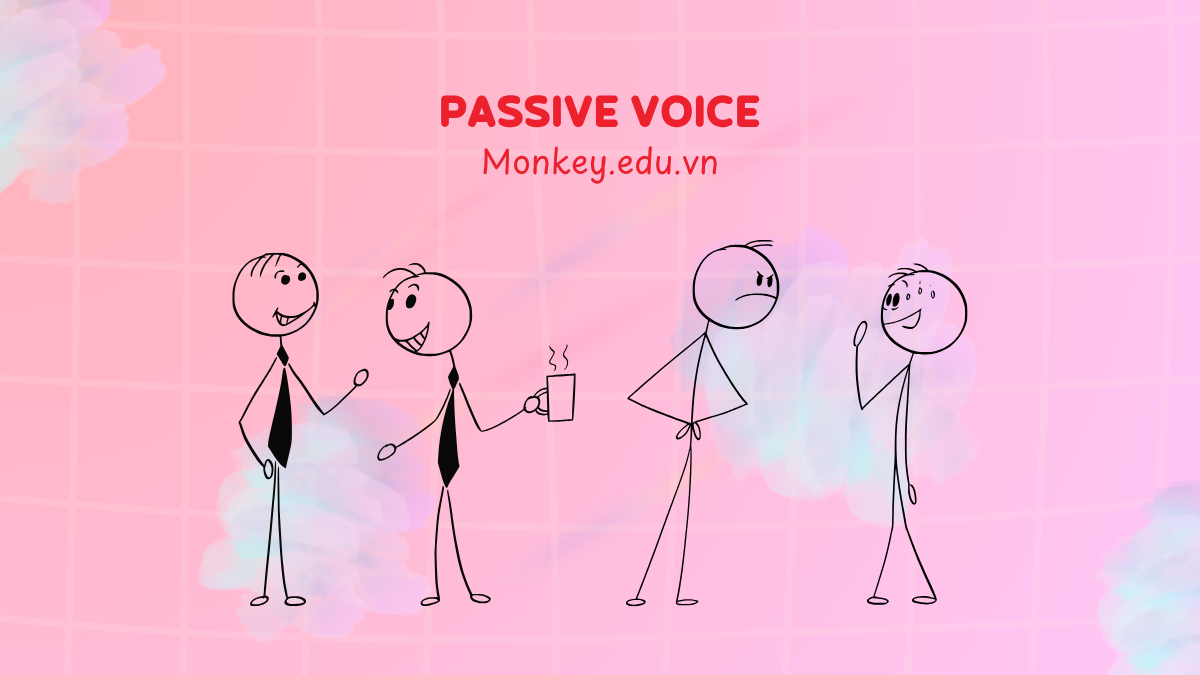หัวข้อไวยากรณ์มักเป็นความท้าทายสำหรับผู้ที่เพิ่งเริ่มต้นการเรียนภาษาอังกฤษ ในบรรดากาลต่างๆ อดีตกาลต่อเนื่องถือเป็นกาลพื้นฐานแต่สำคัญมากที่มักปรากฏในข้อสอบภาษาอังกฤษและการสอบระดับมัธยมปลาย
ในบทความนี้ Monkey จะช่วยให้คุณเข้าใจความหมาย โครงสร้าง คำบอกเวลา และการใช้งานเฉพาะของอดีตกาลต่อเนื่อง หากคุณยังไม่มั่นใจในความรู้ สามารถฝึกทำแบบฝึกหัดอดีตกาลต่อเนื่องที่ให้ไว้ด้านล่างได้
![อดีตกาลต่อเนื่องถือเป็นกาลพื้นฐานแต่สำคัญมาก (ภาพ: อินเทอร์เน็ต)]() อะไรคืออดีตกาลต่อเนื่อง?
อะไรคืออดีตกาลต่อเนื่อง?
อดีตกาลต่อเนื่องใช้เพื่ออธิบายการกระทำที่กำลังเกิดขึ้นในช่วงเวลาที่ชัดเจนในอดีต โดยเน้นไปที่กระบวนการหรือระยะเวลาของการกระทำหรือเหตุการณ์นั้น
ตัวอย่าง:
-
They were eating at the restaurant.
-
You were working yesterday.
-
In 1994 they were working in a small town in Germany.
โครงสร้างของอดีตกาลต่อเนื่อง
เพื่อใช้งานอดีตกาลต่อเนื่องได้อย่างถูกต้อง คุณต้องเข้าใจโครงสร้างในรูปแบบประโยคต่างๆ ได้แก่ บอกเล่า ปฏิเสธ และคำถาม
|
ประเภทรประโยค |
โครงสร้าง |
ตัวอย่าง |
|
บอกเล่า (Affirmative) |
Subject + was/were + V-ing |
In 2010, we were working in a big town in America. |
|
ปฏิเสธ (Negative) |
Subject + was not/ were not + V-ing |
I was not joking. |
|
คำถาม Yes/No (Yes/No Question) |
Was/Were + Subject + V-ing? |
Were they decorating their house at 11 a.m yesterday? |
|
คำถาม WH- (WH- Question) |
WH-word + was/were + Subject + V-ing? |
What was she doing in the company yesterday? |
คำบอกเวลาในอดีตกาลต่อเนื่อง
เพื่อระบุว่าเป็นอดีตกาลต่อเนื่องในประโยค ให้สังเกตคำบอกเวลาดังนี้:
-
ตัวบอกเวลา (Time markers): at, in, yesterday, in 2000, at that time, in the past, etc.
-
วลี (Phrases): at that time, at this time, last night, last week, last month, last year
-
ประโยคที่ใช้ “while” และบางประโยคที่ใช้ “when”
-
กริยารูปอดีต “was” หรือ "were" ตามด้วยกริยาเติม “-ing”
ตัวอย่าง:
-
At this time last week, we were playing soccer on the beach.
-
Sue was swimming at 10 a.m. yesterday morning.
-
I was not paying attention while I was writing the letter, so I made several mistakes.
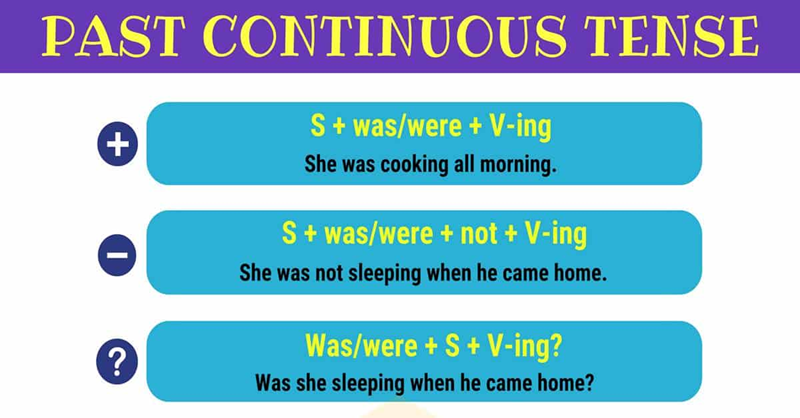
วิธีใช้อดีตกาลต่อเนื่อง
นี่คือการใช้งานอดีตกาลต่อเนื่องที่พบบ่อย พร้อมตัวอย่าง:
|
การใช้งาน |
ตัวอย่าง |
|
เพื่อบรรยายการกระทำที่เกิดขึ้น ณ เวลาเฉพาะในอดีต |
This time last year they were living in England. |
|
เพื่อบรรยายการกระทำหลายอย่างที่เกิดขึ้นในเวลาเดียวกัน |
Their family was playing, cooking and watching TV. |
|
เพื่อบรรยายการกระทำที่ถูกขัดจังหวะโดยการกระทำอื่น |
He was not working when his boss came yesterday. |
|
เพื่อบรรยายการกระทำที่เกิดขึ้นซ้ำๆในอดีต (มักใช้ในเชิงลบ) |
My friends were always complaining about their life. |
แบบฝึกหัดอดีตกาลต่อเนื่อง
แบบฝึกหัดที่ 1: เติมคำกริยาให้อยู่ในรูปที่ถูกต้อง (Put the verbs into the correct form)
-
I (walk) ………………. down the street when it began to rain.
-
At this time last year, I (attend) …………….…. an English course.
-
Jim (stand) …………….…. under the tree when he heard an explosion.
-
The boy fell and hurt himself while he (ride) …………….…. a bicycle.
-
When we met them last year, they (live) …………….…. in Santiago.
-
The tourist lost his camera while he (walk) …………….…. around the city.
-
The lorry (go) …………….…. very fast when it hit our car.
-
While I (study) …………….…. in my room, my roommate (have) …………….…. a party in the other room.
-
Mary and I (dance) …………….…. in the house when the telephone rang.
-
We (sit) …………….…. in the cafe when they saw us.
แบบฝึกหัดที่ 2: เติมประโยคให้สมบูรณ์โดยใช้กริยาในรูปอดีตกาลต่อเนื่อง (Complete the sentences using the Past Continuous form of the given verbs)
คำกริยา: buy, catch, enjoy, feel, make, play, swim
One day, last summer something really surprising happened to us at the beach.
The weather was great, so lots of people (1) ………… in the sea. I (2) ………… ice creams from a shop with my parents, and my brothers (3) ………… football on the beach.
Everyone (4) ………… the lovely weather until someone suddenly shouted, “SHARK!” There was a shark in the water, but luckily it did not try to eat anyone. Perhaps it (5) ………… hungry!
แบบฝึกหัดที่ 3: เขียนประโยคอดีตกาลต่อเนื่องให้สมบูรณ์ โดยใช้คำที่กำหนด (Write complete Past Continuous sentences using the given words)
-
When Don / arrive / we / have / coffee
-
He / sit down / on the chair / while / I / paint / it
-
When / Margaret / open / the door / the phone / ring
-
The students / play / a game / when / professor / arrive
|
เรียนรู้เพิ่มเติมเกี่ยวกับกาลเวลาในภาษาอังกฤษ |
||
เฉลย
แบบฝึกหัดที่ 1:
-
was walking
-
was attending
-
was standing
-
was riding
-
were living
-
was walking
-
was going
-
was studying; was having
-
were dancing
-
were sitting
แบบฝึกหัดที่ 2:
-
were swimming
-
was buying
-
were playing
-
was enjoying
-
was not feeling
แบบฝึกหัดที่ 3:
-
When Don arrived, we were having coffee.
-
He sat down on the chair while I was painting it.
-
When Margaret opened the door, the phone was ringing.
-
The students were playing a game when the professor arrived.
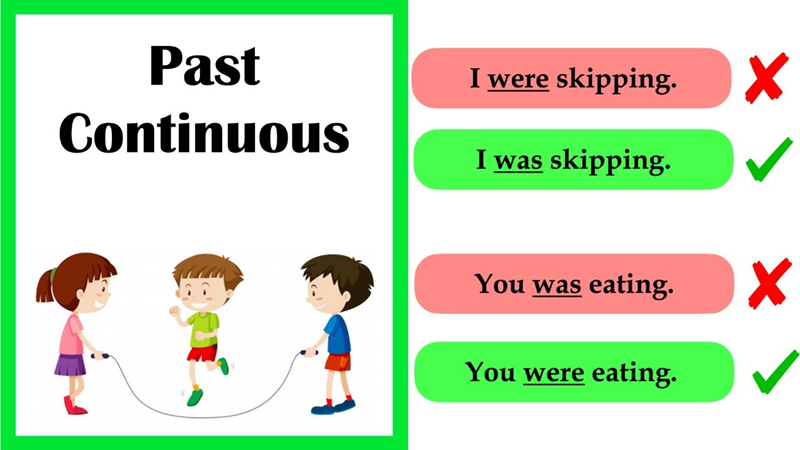
บทความนี้ได้อธิบายอย่างครบถ้วนเกี่ยวกับอดีตกาลต่อเนื่อง พร้อมแบบฝึกหัดเพื่อช่วยให้คุณเข้าใจรูปแบบนี้ได้ชัดเจนยิ่งขึ้น หวังว่าจะเป็นข้อมูลอ้างอิงที่มีประโยชน์ในการเตรียมสอบของคุณ และคุณยังสามารถสำรวจแหล่งฝึกหัดเพิ่มเติมได้จากคลังการเรียนของ Monkey



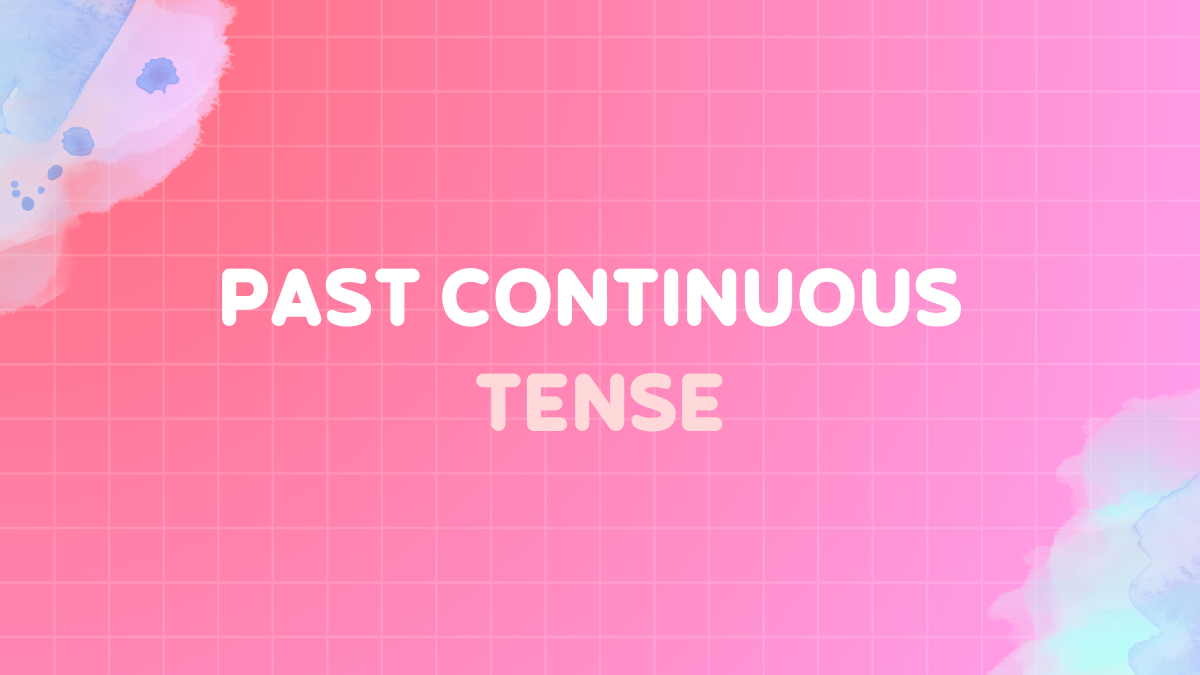
.png)
